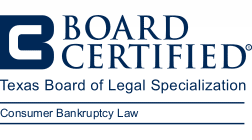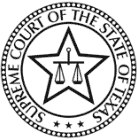Understanding Judgments In Your Bankruptcy Case
Debt Defense Attorney Offering Judgment Relief Strategies
A judgment is what is entered against you by a creditor if you are sued and do not respond or if the creditor is successful in a lawsuit against you. The entry of a judgment means the creditor may pursue collection remedies to satisfy or collect on its judgment. 30 days after a judgment is entered, a creditor may file a writ of execution to seize any nonexempt property belonging to the debtor. Other remedies may include garnishment, repossession, placing a lien on your property, foreclosure, or the taking of nonexempt property.
Once a judgment has been entered, creditors may conduct post-judgment discovery or have a receiver appointed if they believe there are assets to administer. Secured creditors do not always have to obtain a judgment before foreclosing or repossessing collateral.
Generous Exemptions in Texas
While Texas exemptions in bankruptcy cases are generous, it is possible in some instances for a creditor to take money from your bank account or other nonexempt property. If you have been sued, you should contact an attorney as soon as possible. The timelines may move very quickly, and it is important to know what your options are before deadlines pass.
It is important to know which, if any, of your assets are not protected. It is also important to know if filing for bankruptcy is a possibility or if other options are available. The filing of a bankruptcy petition will mean the imposition of an automatic stay. This means the lawsuit and all collection efforts will be halted at whatever point the bankruptcy is filed. An automatic stay also prohibits creditors from calling you. Any creditor who contacts you after an automatic stay is in place is in violation of state and federal laws and may be guilty of creditor harassment.
Depending on specific circumstances, the judgment may be discharged in Chapter 7 or satisfied in Chapter 13. Even if a judgment has already been entered, filing for bankruptcy can help you protect your assets. An experienced attorney can advise you on your various options, inside and outside of bankruptcy, to deal with or satisfy judgments
Debt Defense Litigation
If you have been sued or are facing the possibility of being sued, attorney Vicky Fealy at The Fealy Law Firm, PC can represent you in the litigation, if necessary, or advise you on your various options to deal with the lawsuit. If you are only facing a lawsuit from one creditor, or if you cannot file bankruptcy for various reasons, Ms. Fealy can help you defend the lawsuit, but it is important that you seek immediate legal advice before a judgment is entered against you. Even if a judgment has already been entered against you, she may be able to help you stop collection activity, such as bank or wage garnishment, or she can help you if a lien has been placed on your property.
Call Our Experienced Houston Creditor Lawsuit Defense Attorney Today
Creditors can be relentless, and they are always prepared. Make sure you are equally as prepared with a devoted and diligent advocate by your side. Vicky Fealy has been defending clients facing lawsuits and helping them mitigate the damage of judgments against them since 1992. Call The Fealy Law Firm, PC today at 713-526-5220 or fill out our contact form to schedule your first free consultation at our Houston office.
We are a debt relief agency. We help people file for bankruptcy relief under the Bankruptcy Code.












